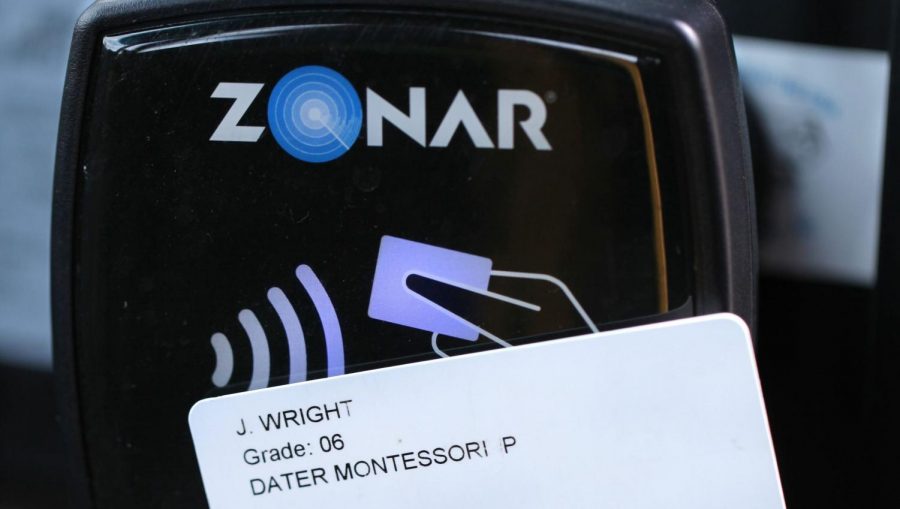The Reality of Trackers in School IDs
February 12, 2020
Should schools be allowed to put trackers in school IDs? Some schools say that trackers would benefit students to keep them safe at school. With the prevalence of school shootings, bullying, and intruders, many schools believe that trackers would prevent students from being harmed on campus. But is this really ethical? We asked Righetti students how they feel about trackers in school IDs.
Megan Supa said, “I don’t really care, they can track me if they want. It’s kinda pointless, though.”
Sierra Gipson said, “What the heck?! They are already treating us like prisoners, watching us through cameras, they are already monitoring us with security guards…are they trying to prepare us for prison?! We already have to raise our hands to go to the bathroom and don’t get to go when we actually need to, why are they doing this?!”
The trackers that are used are called RFID trackers. This means that they are chips, placed in ID cards (or clothing), which transmit a specific serial number through radio signals that connect to an electronic reader located at the entrance of some schools. As for positives for staff and schools, students cannot get away with being truant or late for school. In this aspect, students are held accountable for actually going to school, or at least making sure that their ID cards make their way there. Many schools believe that with this technology, there is no longer a need for roll call. Since schools are funded by how often students attend, students that check-in are marked as present, meaning that the school is funded regardless if students are actually in class.
Do the benefits really outweigh the negatives? According to https://www.nametagwizard.com/, many students and parents understand that this can be used to protect students, but think that trackers “treat kids like cattle, and that they’re unethical.” It also does not completely wipe out the risk of intruders and school shooters. School shooters can be students who are currently attending the school and cards can be easily copied if the chips are not encrypted. Students can also skip school by having a friend bring their card for them. There could be health risks also involved with the radio trackers.
Lastly, some schools may be taking tracking students even farther by putting trackers into student’s clothing. While none of these options read students’ locations outside of the school campus, many believe that this is a blatant invasion of privacy, especially for older students. In the end, it’s up to schools to make the choice: Should schools put tracking devices in students’ clothing and IDs?

